The harm of alcohol to the human body can reach an impressive level. Drinkers put their physical and mental health at risk-damage to internal organs, disturbances in the work of the most important system that controls the body (alcohol has a particularly dangerous effect on the immune system), and personality deterioration due to its impact on the human nervous system.
The effects of alcohol on the body include:
- liver;
- brain;
- Nervous system and psychology;
- Cardiovascular System;
- kidney;
- Digestive system
- immune system;
- Muscles and joints;
- Endocrine System;
- spleen;
- Respiratory system;
- Visual organs
- Exterior.
In order to avoid negative consequences, you first need to understand how alcohol affects the human body.
The damaging effects of alcohol on the liver
To understand how alcohol affects the liver, it is necessary to understand its purpose. The liver is the organ responsible for removing toxic substances from the body; it is required for various metabolic processes. For people who drink a lot, it is important to understand why alcohol is bad for the liver and how it works. When it comes to the harm of alcohol, it can be pointed out that it will gradually destroy the liver. The ethanol that penetrates into it is oxidized to form a strong toxin—acetaldehyde. It accumulates in the liver, changes organs and disrupts its work.
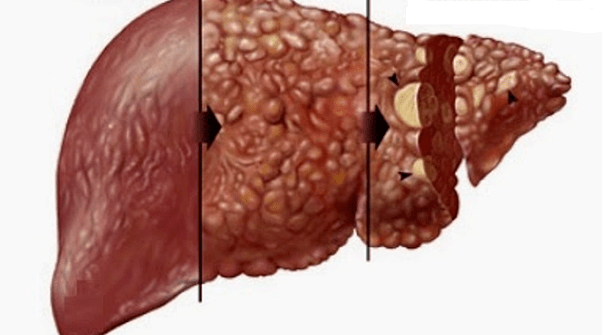
The effect of alcohol on the liver is indeed devastating. Liver cells die from alcohol, they are replaced by scars or fatty tissue, so the organs cannot perform their functions normally (toxins accumulate in the body and eventually become poisoned).
The most serious consequence of heavy drinking that is harmful to the human body is liver cirrhosis. With this disease, the structure of the organs begins to change, their size becomes smaller, and the blood vessels are affected: they shrink, the pressure in them rises, and the blood stagnates. The natural result of this condition is rupture and bleeding of the blood vessel wall, which is the cause of many deaths.
The effect of alcohol on the brain
The effect of alcohol on the body mainly affects the brain. In a drunk state, the human cerebral cortex is destroyed, and certain parts of the brain gradually become numb and die.
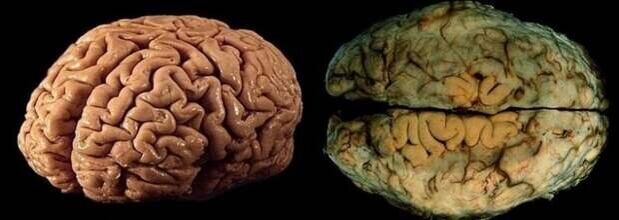
People who love to drink, the brain will change-covered with ulcers, scars and edema, blood vessels dilated, local ruptures, cysts appear in dead areas. These consequences once again prove the negative effects of any dose of alcohol on the human body.
The effects of alcohol on the nervous system and psychology
People who are addicted to alcohol need to know how alcohol affects their psychology. Regular consumption of alcoholic beverages, especially excessive consumption, can lead to mental breakdown. A person's character and behavior are completely changed, and the spiritual and moral degeneration begins. Alcohol interacts with the nervous system to destroy personality. The effects of alcohol on sleep can cause insomnia. There are other major consequences-mental disorders and violations of full understanding of reality. Alcohol is harmful to memory, attention and motor coordination. It can be seen that the influence of alcohol on human psychology can cause great harm to the entire body.
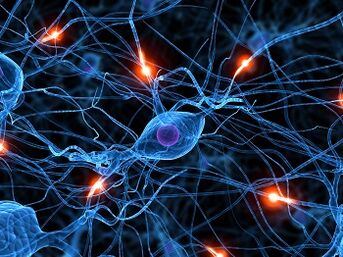
It is necessary to understand in more detail why alcohol is harmful to human mental health. The harm of alcohol to the human body, especially the nervous system, is the damage of nerve fibers and the deterioration of electrical conductivity, which is called polyneuritis in medicine. A person loses sensitivity to pain and temperature changes, numbness, weakness and "cotton smell" in the legs and arms. Other signs: swelling, increased sweating, skin "goose bumps", itching and burning, severe pain, muscles seem to be taut, as if they have been pricked by a needle.
The most common effects of drinking on the central nervous system are:
- Delirium tremens. It is worth understanding why this situation is dangerous. Appears after the cessation of long-term drinking, accompanied by hallucinations, delirium, fever, and suicidal tendency;
- Encephalopathy. Caused by a severe lack of vitamin B in people who drink for a long time. Her symptoms are problems with vision and vestibular organs, and confusion;
- Alcoholic Dementia Syndrome. Loss of basic intelligence, problems with counting, speech, perception, concentration, and memory;
- Alcoholic epilepsy. It manifests as convulsions and seizures in a hangover state;
- Korsakov psychosis. Sensation loss in limbs is accompanied by significant memory impairment.
There is no doubt that the psychological consequences of alcoholism led to the deterioration of her personality, and her behavior was disturbed.
Cardiovascular problems
Alcohol is harmful to the health and normal function of the heart muscle. Heart disease is one of the most common causes of death for many alcohol drinkers.
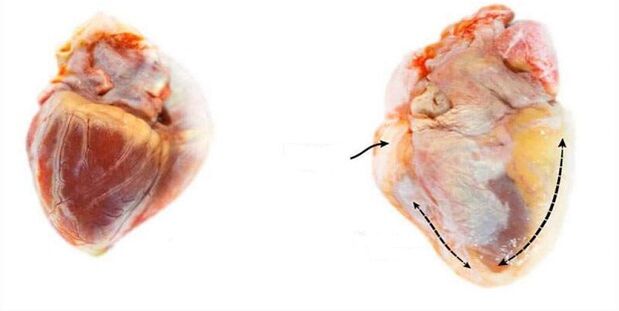
This muscular organ can swell with frequent exposure to alcohol. In addition, the consequence of high-dose alcohol is an increased risk of arrhythmia, hypertension, myocardial infarction, stroke, myocardial ischemic injury and atherosclerosis.
Kidneys and wine
The kidney is a very important organ. Its functions are as follows: excrete body fluids from the body, remove toxic substances in the blood, and participate in metabolic processes. Regular consumption of alcoholic beverages will force the kidneys to work at maximum intensity.
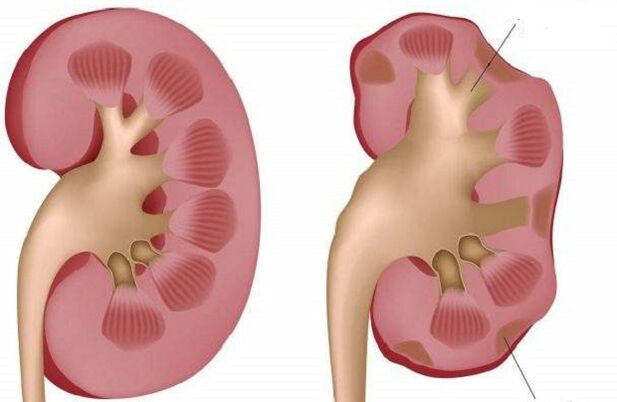
This threatens a whole set of pathological conditions-dehydration, metabolic disorders, poisoning, the appearance of stones, pyelonephritis, the development of renal failure, inflammation of the urinary tract, the appearance of cancer.
How alcohol affects the digestive tract
Alcoholic beverages are poisons for the digestive system. The esophageal wall is affected, heartburn occurs, the vomiting reflex is enhanced, the blood vessels in the esophagus become thinner and wider, and the vein wall may rupture during vomiting, causing bleeding.
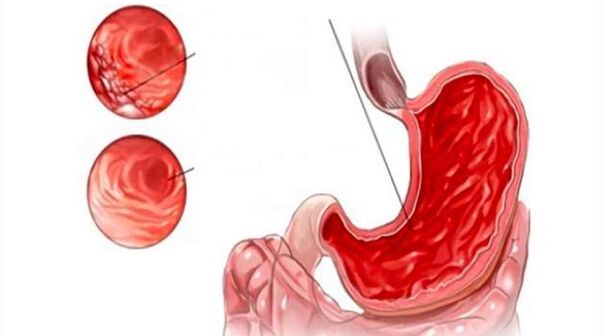
In addition, alcohol can cause irreparable damage to the protective membrane of the stomach. The result is premature aging of organs and impaired function. The typical diseases of drinkers are gastritis, ulcers and even gastric cancer.
The effect of alcohol on immunity
The message about how alcohol affects immunity is twofold. Drinking alcohol in moderation can help you better cope with a cold. However, the more frequently you drink alcohol, your immunity will be suppressed.
The decrease in immunity is manifested as a decrease in the amount of a special protein-lysozyme, which is part of saliva, tears and other secretions. This protein can neutralize harmful microorganisms that enter the body and prevent the development of various infectious diseases. Therefore, we can confidently assert that alcohol reduces immunity.
The effects of alcohol on joints and muscles
Muscle tissue is affected by any dose of alcohol, which is very harmful to muscle health. It slows down or stops the growth of muscles completely, they atrophy and become loose, alcohol can even destroy them completely. This can increase fat storage in the body. Alcohol and joints are not compatible concepts. Alcohol has a significant impact on the health of the skeletal system, because it destroys bone tissue and excretes calcium from the body, bones will age rapidly, become fragile, and often fractures. After drinking alcohol, joint pain often occurs.
Joint problems are common in the lives of alcoholics. People who drink alcohol often suffer from arthritis, which is an inflammation of the joint structure. Signs of arthritis: The joints begin to ache, especially the knees. After another overeating, the pain intensified.
Alcohol retains fluid in the body, causing edema, and uric acid stops normal excretion and accumulates in the joints in the form of salt, which triggers the appearance of gout. Excessive fluid enters the joints, compresses the joint cavity walls, touches nerve fibers, and causes pain in the joints after drinking. Over time, due to the action of alcoholic beverages, the joint structure will be deformed and completely destroyed.
How alcohol affects your appearance
A person who is addicted to alcohol is easily recognized in a crowd. The appearance of a typical drinking fountain:
- The nose is blue;
- Redness and swelling;
- Bags under the eyes
- Bruises due to bruises or falls;
- Sloppy clothes;
- Messy hair.
The effect of alcohol on the skin is also negative. It appears red, which is due to the increase in blood flow under the influence of alcohol. The heavy load on the blood vessels causes them to be damaged, and the small capillaries rupture, which can cause bruises with blue and red spots on the face. The light blue color is the result of severe blood vessel damage, and blood cannot provide oxygen to these areas well.

In order to remove alcohol from the body, a lot of fluids are needed. Dehydration begins. A person who has drunk a lot of alcohol feels intense thirst and tries to quench his thirst. Body fluids accumulate and drain slowly because the body tries to protect itself from repeated dehydration and stores water, which swells the face and other parts of the body.
The effect of alcohol on the endocrine system
Alcohol and its effects on human health are also related to the work of the hormonal system. Its main organs:
- Thyroid (regulate metabolism);
- Pituitary gland and hypothalamus (control the work of the entire system);
- Pancreas (responsible for producing insulin);
- Pineal gland (produces hormones that affect sleep, blood circulation and nervous system);
- Adrenal glands (producing adrenaline);
- Thymus (regulate the growth and development of immune cells);
- Sex glands (produce male and female hormones).
The effect of alcohol on the thyroid and other organs of the endocrine system is that it reduces the production of certain hormones and increases the production of other hormones. For example, men are dominated by female hormones, while the level of male hormones declines. For women who drink, the situation is just the opposite. Hormonal imbalance can adversely affect the state of the entire organism. Some endocrine diseases are related to congenital gene mutations, and these mutations are often caused by drinking too much alcohol. The normal interaction of alcohol with the thyroid and other endocrine organs is impossible.
How alcohol affects the spleen
Usually, the spleen is injured by frequent drinking. This organ plays a role in taking advantage of aging and damaged blood cells in the body. It is a reserve "warehouse" of blood, supplying blood to the blood vessels of the circulatory system when necessary. In addition, this organ can remove pathogenic microorganisms from the blood.

Pain in the left side of the flanks may be a sign of spleen problems caused by excessive drinking. It is easy to explain why drinking alcohol is dangerous and why the spleen can be injured. In most cases, enlargement of this organ, splenic infarction, abscess, and severe cases requiring removal of this organ are also possible. Excessive consumption of any type of alcohol can severely damage the function of the spleen and cause death.
Effects on the respiratory system
Drinkers should understand how alcohol affects lung health. Alcohol vapor affects the mucous membranes of the respiratory tract, leading to pneumonia, bronchitis, chronic pharyngitis, and laryngitis (thus causing hoarseness of alcoholic voices). In addition, these diseases are difficult and long-term. Pneumonia can flow into lung sclerosis (hardening of lung tissue). Alcohol in the blood can cause the destruction of lung tissue and its pathological expansion (emphysema).
Taking the lungs as an example, we can see what irreparable harm caused by alcohol to the human body. Large doses of alcohol can impair the respiratory activity of the lungs, and in some cases, breathing will stop completely. Delirium tremens is often accompanied by inflammation and pulmonary edema. There is also a link between alcohol and lung cancer.
The effect of alcohol on human vision
Not everyone knows for sure whether alcohol is bad for eyesight or why alcoholics experience eye pain. Under the influence of alcohol, intracranial pressure rises. This can cause damage to the blood vessels in the eyes and large amounts of small bleeding, interruption of oxygen supply to the muscles, and they are in a state of permanent tension. The consequence of this situation may be atrophy of the eyeball muscles and decreased vision quality.
In addition, alcohol can affect the nerve fibers in the fundus of the eye and destroy the function of the optic nerve. The most serious effect of alcohol on the visual system is blindness.
Alcoholism and its consequences have a devastating effect on the body, as well as significant psychological changes. Only by stopping drinking can we stop the process of destroying the body.































